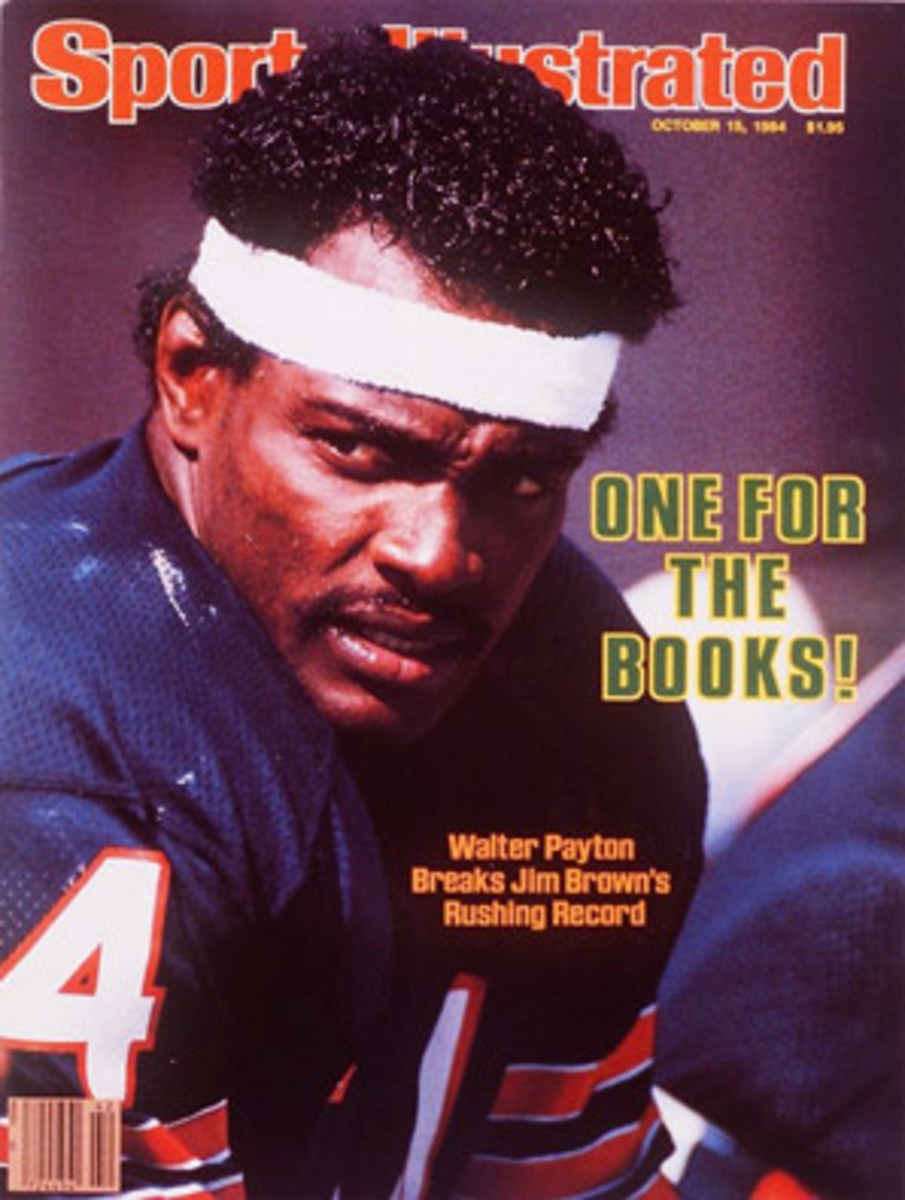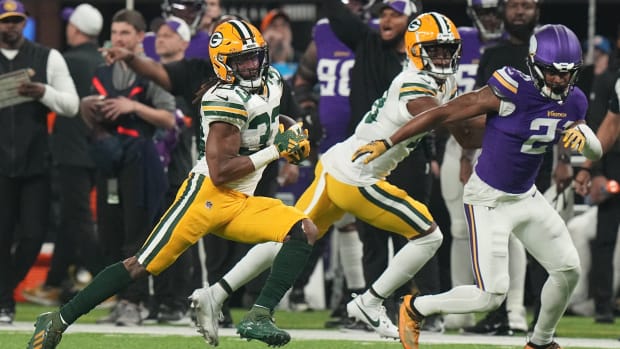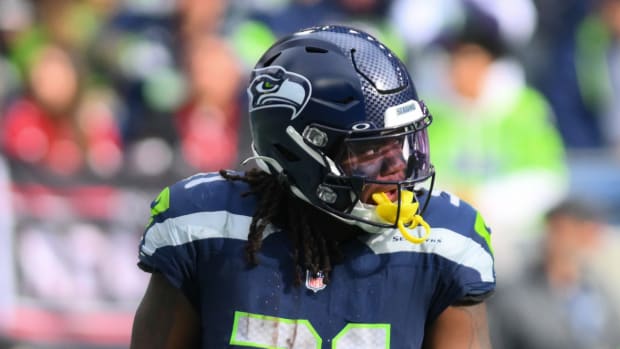A Q&A with author Jeff Pearlman
Jeff Pearlman's latest book, Sweetness: The Enigmatic Life of Walter Payton, is sure to draw plenty of attention. SI.com's Ben Glicksman talked with Pearlman, a former SI senior writer and current SI.com contributor, about Payton, the process of writing the book and more.
SI.com: What motivated you to write a book about Walter Payton?
Jeff Pearlman: I wanted to write about somebody iconic. There aren't many icons who haven't been written about a million times. Go through the list: Joe Namath, Joe DiMaggio, Hank Aaron, Mickey Mantle. It's hard. There hasn't been much written about Walter Payton. You can narrow it down to he was a great football player and a prankster. But for good and bad, he was also very introspective. He wasn't just some dummy going out and playing sports.
SI.com: You've also written works on Roger Clemens and Barry Bonds. How did this experience compare?
Pearlman: I thought Bonds was an unambiguously bad guy. I still do. I had to beg people to say something good about him. I just didn't find Roger Clemens introspective. I didn't find him that likable. Payton's the opposite. He was beloved, and rightfully so. He was amazing with fans. He went out of his way to meet their expectations.
SI.com: Do you have an example?
Pearlman: I'll tell give a great one. There was a football player from Central Florida, Todd Burks. He couldn't get a sniff from an NFL team. He's flying on a plane from Chicago to Orlando, and someone tells him Walter Payton is in first class. He begs the flight attendant, 'Can I just talk to him for a minute?' Finally, the attendant gives in. Burks gives him his bio and tape clip. Payton says, 'Call my office in two weeks.' He does, thinking he probably won't remember him. Payton gets the guy a tryout with the Bears! Some kid he never met, some guy he had no reason to go out of his way for. How many professional athletes would do that?
BOOK REVEALS A DIFFERENT SIDE OF WALTER PAYTONREAD THE EXCERPT FROM SPORTS ILLUSTRATEDGALLERY: RARE PHOTOS OF WALTER PAYTON
SI.com: In the title of the book, you label Payton as enigmatic. Why?
Pearlman: He was an odd combination of extrovert and introvert. When it came to fans, he was as great as you could be. But he was also, after his career was over, a beaten up person who struggled to find happiness. As I wrote, there were many times he would bring up suicide. There was this cry for help that he never felt comfortable doing anything about.
SI.com: One particularly striking anecdote surrounds his Hall of Fame induction. Why was that so telling?
Pearlman: If you want to talk about the word enigmatic, give me a better way to sum it up than you're at your Hall of Fame induction ceremony, your wife is in the first row and your girlfriend is in the second row. This is the culmination of everything you've accomplished. You're on stage. You're wearing your jacket. This is the moment you've been waiting for. And internally, you're freaking out that your wife and girlfriend are both attending your speech. What's gonna happen if they meet? A lot of athletes cheat on their wives. But that's a new one.
SI.com: How do you think fans will receive those types of revelations?
Pearlman: Some loyalists will read the book and say, "How could this guy write about Walter Payton this way?" I feel almost the opposite. There's something important about learning that even the greatest among us have their burdens. Whether you're a Hall of Fame running back or a guy moving cement, we all have issues. No one lives up to the pedestal.
SI.com: Were all of your sources cooperative?
Pearlman: No. Certainly not. But I didn't expect them to. The ultimate goal was to write a definitive biography. I had a good friend of his say, "You're not gonna write about the Hall of Fame." How can you write a definitive biography about someone, find out something like that and not write about it? Your goal isn't to write an ode to Walter Payton. The goal is to find out who he was and how he lived. I'm very defensive about that. You want to write an honest and accurate biography.
SI.com: What surprised you most during reporting?
Pearlman: At the start, I didn't know very much about him. One of the first things I did was read Never Die Easy, his autobiography. Understandably, the book is very positive. One of my first interviews -- it was with his brother or his agent -- I said, "Was he one of these guys who has something magical about him?" Because it was so overwhelming. The guy is a transcendental human being. I guess my biggest surprise was finding out that he wasn't.
SI.com: What is Walter's lasting legacy?
Pearlman: Mike Ditka told me this: You go to a Cleveland Browns game, you don't see many people wearing Jim Brown jerseys. You go to a Packers game, you don't see Paul Hornung jerseys. But if you go to a Bears game, you still see tons of people -- 12 years after he died -- wearing Walter Payton jerseys. That's not just because he was a great player. He was so good to the fans. That's why he's iconic. He treated people with dignity.






































